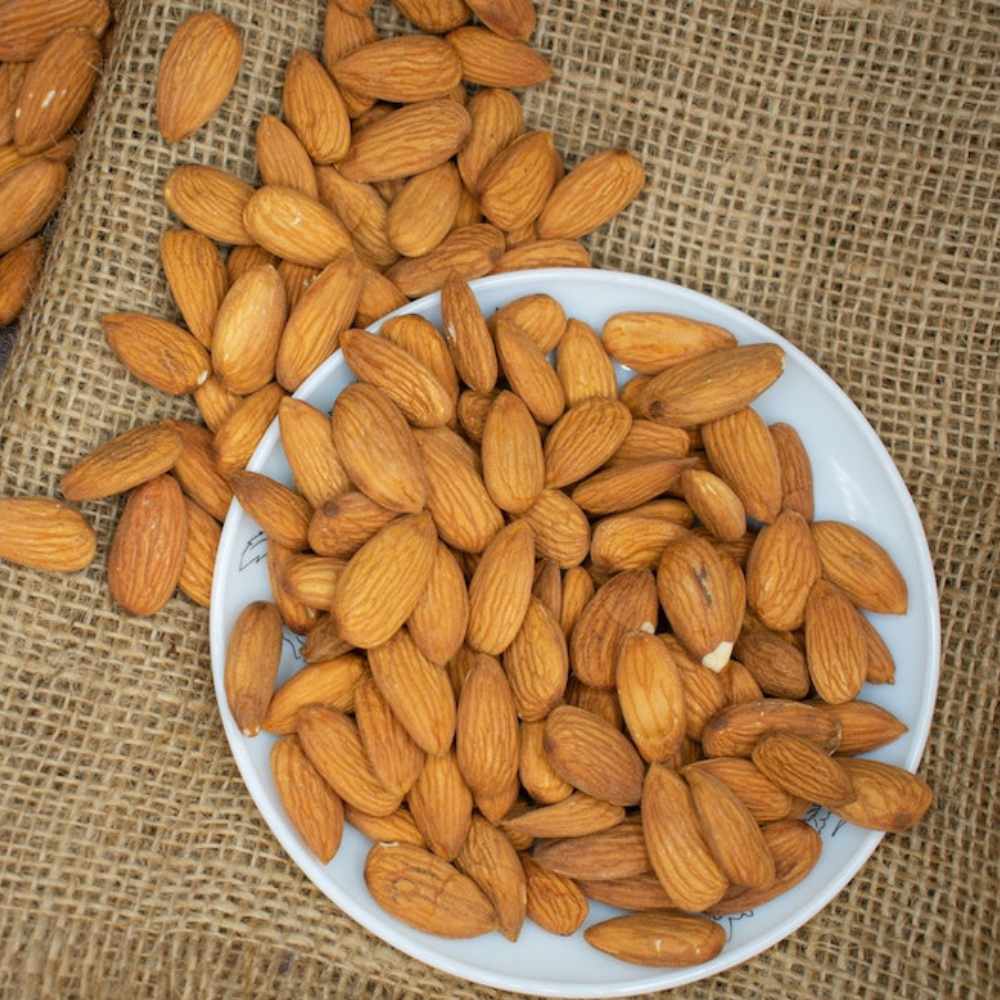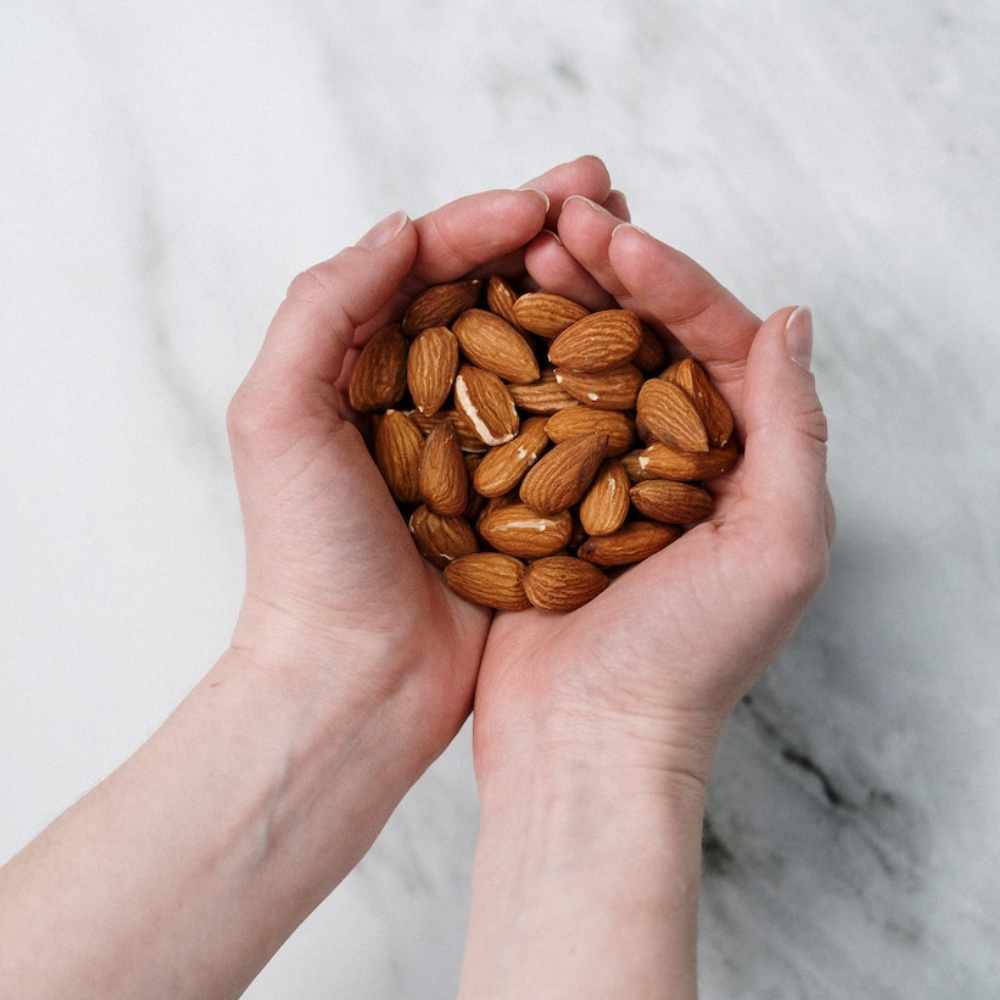
Does Almond Oil Clog Pores? Or is it the Secret to Flawless Skin?
Have you heard of almond oil and its many purported benefits for your skin?
Almond oil has been touted as a miracle product that can do everything from reduce wrinkles to fight acne.
But does it really help with all these issues, or is this just hype? We wanted to know!
That's why we took a deep dive into the research and now we're here to tell you the truth. Does almond oil clog pores or not? Read on to find out!
What is Almond Oil?
Almond oil comes from almonds (obviously) and has been used as a beauty product since ancient times.
It’s known for its moisturizing properties, which makes it great for both dry and oily skin types.
In addition, almond oil is also said to have anti-inflammatory, antioxidant, and anti-aging benefits.

How is Almond Oil Made?
Almond oil is made from small, edible almonds that come from Prunus dulcis, a type of fruit tree in the Rosaceae family.
The process to make this popular oil is surprisingly simple and involves three steps: pressing, filtering, and bottling.
The first step of making almond oil requires an open container for the nuts to be poured into for pressing.
Once full, a mechanized press uses pressure to extract the oil from within each nut. This pressed almond oil then goes on to be filtered in order to remove any impurities or sediment left over from pressing out the almonds' oils. From here it's ready for bottling.
What Are the Benefits of Almond Oil for Your Skin?
In addition to being non-comedogenic and safe for sensitive skin, almond oil has several other benefits for your skin health.
For starters, it's incredibly moisturizing due to its high content of fatty acids like oleic acid, linoleic acid, palmitic acid, and stearic acid.
These fatty acids work together to nourish your skin from within and keep it hydrated throughout the day.
Additionally, almond oil contains vitamin E which helps protect against environmental damage from free radicals as well as reduce signs of aging like wrinkles and fine lines.
Finally, because of its anti-inflammatory properties, almond oil can help soothe redness and skin irritation associated with conditions like eczema or psoriasis.

Why Choose Almond Oil Over Other Oils?
What makes almond oil special compared to other types of oils lies in its many beneficial properties which include being rich in Vitamin E and fatty acids such as oleic acid and linoleic acid.
Both are good fats that are known for their hydrating abilities as well as anti-inflammatory qualities when used topically on dry skin.
Additionally, due its antioxidants content it can help protect against oxidative damage caused by environmental stressors like sun exposure while protecting against wrinkles formation!
These various benefits make almond one of most sought after natural oils around world - so you can understand why this simple yet effective process has stood test of time!
What is the Difference Between Bitter Almond Oil & Sweet Almond Oil?
Bitter almond oil and sweet almond oil are two very different types of oils derived from two varieties of almonds.
Both bitter and sweet almond oil have been used for centuries in many cultures to treat a variety of ailments, but there are some key differences between them that you should know about.
Bitter almond oil is acquired from unripe, or “bitter” almonds, while sweet almond oil comes from ripe, or “sweet” almonds.
This difference affects their appearance, scent, taste and most importantly their chemical composition.
The bitterness in this almond oil is due to the presence of hydrocyanic acid (better known as cyanide), which gives off a distinct aroma when heated.
This also means that it must be processed with extreme care in order to remove as much trace amounts of hydrocyanic acid as possibly before being fit for human use.
Sweet almond oil does not contain any cyanide compounds at all; rather its scent is more neutral and pleasant compared to that of its counterpart.
Which Type of Almond Oil is Best for Skincare?
On a chemical level, bitter almond has greater concentrations of both vitamin A and E than its sweeter counterpart - making it an excellent antioxidant-packed option if you're looking for an effective skincare product!
Additionally it contains higher levels Alpha-Linolenic Acid (ALA) which makes the cold-pressed recipe highly nutritious when applied topically - great news for those looking to keep up appearances.
On the other hand sweet varieties have higher concentrations oleic acid meaning they absorb quickly into skin giving off less greasier feel than its source material; perfect choice then if you’re aiming something more fast working!
Generally speaking despite these slight differences both forms are superbly versatile lubricants suitable even delicate epidermal areas like eyes or scalp without triggering discomfort to irritated skin - so no doubt either will do just fine depending on your needs.
Almond oil is also the perfect lubricant to use as a massage oil.

Does Almond Oil Cause Clogged Pores?
The short answer is no - sweet almond oil does not clog pores. In fact, it has a comedogenic rating of 2, which means it's not likely to clog pores.
Comedogenic ratings measure how likely an ingredient is to cause comedones—which are whiteheads or blackheads caused by blocked pores—so in this case, almond oil will likely not cause any blockages or breakouts.
This makes it a great choice for those with sensitive skin who are prone to acne or other blemishes.
Examples of oils with a higher comedogenic rating are oils such as avocado oil, coconut oil, and cocoa butter. These can possibly be responsible for clogging pores.
While skin-friendly oils that have a low comedogenic rating include rosehip oil, olive oil, squalane oil, sunflower seed oil, grapeseed oil and even beesewax.
Is Almond Oil Good for Acne Prone Skin?
Yes, almond oil is an excellent choice for ! Rich in both Vitamin E and omega-6 essential fatty acids, almond oil can help to reduce inflammation associated with acne flare ups and minimize excess sebum production.
It’s a natural emollient that helps keep skin hydrated while still allowing pores to breathe and clear out impurities.
The antioxidant properties of the vitamin E content also help protect your skin from environmental pollutants.
Almond oil can be used both topically and consumed orally as part of your skincare routine.
When applied directly onto the skin, it helps soothe irritation caused by blemishes or breakouts while providing anti-bacterial benefits to kill off any bacteria living on the surface.
When taken internally, it aids digestion and boosts immunity which are both essential for maintaining healthy skin complexion.
No matter how you choose to incorporate almond oil into your daily regimen - whether as part of an at home facial mask or through consumption as part of a nutritious diet - its nutrient dense makeup will leave you with clearer, nourished looking skin in no time.
Before you apply almond oil to your face, make sure to exfoliate dead skin cells away first!

Can You Sleep with Almond Oil on Your Face Overnight?
Absolutely! Almond oil is a great all-natural ingredient that can greatly benefit dry and sensitive skin overnight. Not only does almond oil have natural moisturizing properties, but it also boasts several other helpful benefits.
But when should you apply almond oil for optimal effectiveness? When using as a nighttime moisturizer, you want to make sure your face is clean before applying almond oil.
Apply a few drops of pure organic almond oil evenly all over your face and neck area—avoiding the eye area—and then massaging it into the skin until fully absorbed.
This will form a protective layer around your complexion keeping hydration levels sustained throughout the night without feeling greasy or heavy on the skin come morning time.
Plus with its soothing aroma, you’ll be left feeling relaxed after application helping ensure you get those much-needed z's!
Does Almond Oil Help Fade Scars?
Yes, almond oil can be helpful in fading scars! Almond oil is known to have numerous healing properties that make it a great option for treating scar tissue.
Rich in Vitamin E and various fatty acids, such as oleic acid, linoleic acid and palmitic acid, almond oil helps soften the skin and contributes to collagen production which is essential for repairing damaged cells.
It also contains polyphenols which are antioxidants with anti-inflammatory benefits that help reduce redness and swelling associated with scarring.
Additionally, because of its astringent qualities it helps tighten the skin around the wound to mark a more even healing process.

How Do You Use Almond Oil on Scars?
To use almond oil effectively on your scars you should start by applying it generously over your scarred area twice per day.
Massage the area carefully for 3-4 minutes with gentle circular motions so that your skin absorbs all of its beneficial components including vitamin A, magnesium and calcium which are important elements when trying to fade scars.
Applying a small amount of a carrier oil like warm olive or coconut oil over the affected area before using almond oil will further enhance absorption.
If you’re looking for an alternative solution then there are some natural remedies worth considering.
These are lemon juice or aloe vera gel both of which contain vitamin C and other nutrients thought to help repair damage caused by old wounds or burns resulting in lighter colored healed surfaces less prone to becoming discolored again over time if exposed frequently sun rays.
This is something common among most forms of scarring due their tendency not being able withstand UV light well enough compared regular healthy epidermis layers.
While these options might work they don't provide near same level benefits derived from using pure, raw organic almond oil due sheer nutrient density contained within this nutritional powerhouse!
Should I Put Almond Oil in My Hair?
Absolutely! Almond oil is an excellent choice for hair care and can work wonders for both the scalp and your locks.
In fact, research suggests that almond oil may have stronger antioxidant properties than olive oil or coconut oil when it comes to protecting the scalp from damage by free radicals caused by environmental pollutants or sun exposure.
Almond oil has also been found to be effective in conditioning the hair shafts that give your tresses their shine, strength and softness.
Almond oil can help make your hair look healthier because of its emollient nature meaning that it helps reduce water loss in the skin tissue where present (including on the head).
This means less moisture loss from each strand of hair which prevents dryness and brittleness while helping maintain maximum hydration levels over time.
Additionally, almond oil has antibacterial properties which help keep bacteria at bay so you don't end up with dandruff or other problems typically associated with overly oily scalps.
How Do You Use Almond Oil on Your Hair?
All this being said, a few important things should be kept in mind when using any type of product on your scalp or strands of hair:
Firstly, use only pure almond oil as anything else will likely contain chemicals or additives that might wreak havoc upon long-term use.
Secondly, never apply too much since this will weigh down freshly washed locks.
Thirdly, don’t forget to let it sit on your hair before rinsing off completely (or better yet – shampooing out afterwards) to get best results.
Finally, avoid contact with eyes as even though milder than many oils – almond does still have potential irritants if not used correctly.
So go ahead put some almond oil in your hair for all its amazing benefits. But, don't forget to use caution during application by following proper steps outlined above for optimal results!

Get Your Almond on!
All in all, almond oil is an excellent choice if you’re looking for something natural yet effective when it comes to caring for your skin health.
With its low comedogenic rating combined with its plethora of nourishing fatty acids (not to mention its anti-inflammatory properties), there’s no doubt that this humble ingredient packs quite a punch when it comes to keeping your skin looking healthy and youthful!
So go ahead—give almond oil a try today! We think you'll love it!
If you have acne prone skin, you definitely need to use a great pore cleanser. If you're looking for a great pore cleanser, we have some recommendations for you! Tap the button below for our list of the best pore cleansers you can buy!

















